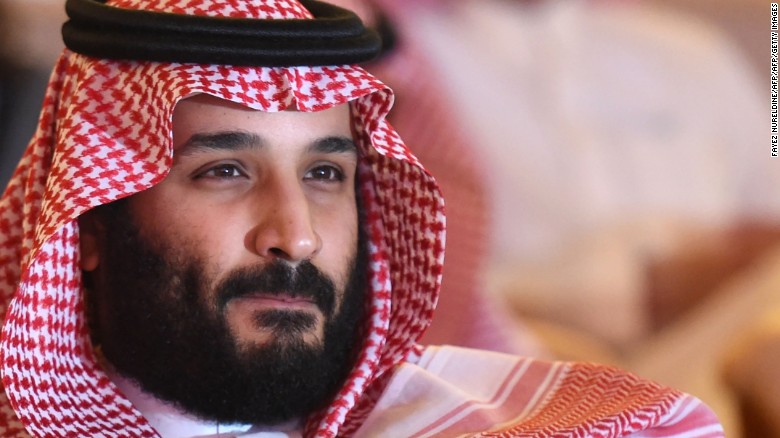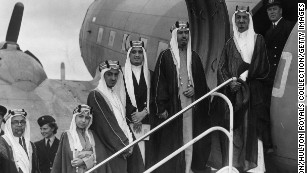By Nic Robertson, James Masters and Sarah El Sirgany, CNN
Updated 7:06 AM ET, Sun November 5, 2017
(CNN)Saudi Arabia's newly formed anti-corruption committee detained 11 princes and four sitting ministers on Saturday, according to Saudi-backed broadcaster Al-Arabiya.
In addition, three ministers were removed from their positions and tens of former ministers were detained as part of the new anti-corruption campaign initiated by King Salman bin Abdulaziz Al-Saud, according to Al-Arabiya.
King Salman ordered the new anti-corruption initiative as part of an "active reform agenda aimed at tackling a persistent problem that has hindered development efforts in the Kingdom in recent decades," a press release from the Saudi Ministry of Communications said.
According to Saudi TV, the three men removed from their posts were Economy and Planning Minister Adel bin Mohammed Faqih, National Guard Minister Prince Miteb bin Abdullah bin Abdulaziz and Naval Forces Commander Admiral Abdullah bin Sultan bin Mohammed Al-Sultan.
The royal decree said the committee was needed "due to the propensity of some people for abuse, putting their personal interest above public interest, and stealing public funds" and will "trace and combat corruption at all levels," according to the release.
The three ousted ministers were replaced, with Prince Khalid bin Abdulaziz bin Mohammed bin Ayyaf Al Muqren becoming National Guard minister, Mohammed bin Mazyad Al-Tuwaijri becoming the Economy and Planning Minister, and Vice Admiral Fahd bin Abdullah Al-Ghifaili taking on the role of Naval Forces Commander.
The committee, headed by Crown Prince Mohammed bin Salman, has the authority to investigate, arrest, issue travel bans and freeze the assets of those it finds corrupt.
The 32-year-old has long been a prominent figure in Saudi politics, seen as a key power player behind the king and a reformer by Saudi standards.
Since his appointment some restrictions on women have been eased and last month, Mohammed bin Salman vowed to destroy "extremist ideologies" in a bid to return to "a more moderate Islam."
John Defterios, CNN's Emerging Markets Editor who has covered Saudi Arabia since the 1990s, said the sweep was part of the Crown Prince's "top to bottom overhaul."
"From literally his Vision 2030 plan, to social reforms with women driving, and as we see now the third leg of it, an aggressive push to root out corruption," he said.
Defterios said there had long been concerns about corruption within Saudi Arabia.
"The correction in oil prices has changed the game they cannot afford to go business as usual as they have for the past 20 years," he said.
"That's the reason why they want to diversify the economy and also make a bold attempt to root out corruption."
Speaking to CNN on Sunday, Fawaz Gerges, Professor of International Relations at the London School of Economics, said that the world was witnessing the "birth of a new order in Saudi Arabia."
"The Crown Prince Mohammed bin Salman is not only consolidating his power but also laying out his vision for the kingdom and putting his vision into practice," he said.
"Many people in the past two or three years have underestimated the ability of the crown prince Mohammed bin Salman, not only to consolidate his power but to structure state and the economy.
"Everything which has been happening in the past year or so in Saudi Arabia tells me that Mohammed bin Salman, is putting his ideas into practice and cracking down not only on opposition figures but trying to prevent, as he said a few days ago, the bleeding of the economy and the migration of resources from Saudi Arabia into other countries.
"Saudi Arabia is going under a major, major transition. It's going to take a while for this new order to become established and clear."
CNN's Nic Robertson reported from Tokyo. Sarah El Sirgany reported from Abu Dhabi and James Masters wrote from London.

























